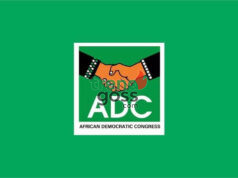Graduating students across Nigerian universities and polytechnics intending to participate in the National Youth Service Corps (NYSC) will now be required to submit their final year projects and thesis before mobilisation can be processed.
This follows President Bola Ahmed Tinubu’s approval of a new reform linking NYSC mobilisation to the National Policy for the Nigeria Education Repository and Databank (NERD).
By invoking Sections 2(4)(4) and 16(1)(C) of the NYSC Act, the President directed that no graduate—whether from a Nigerian or foreign institution—will be mobilised or exempted from NYSC without proof of compliance with the NERD policy.
The directive was communicated through a circular issued by the Secretary to the Government of the Federation, Senator George Akume, and is set to take effect from October 6, 2025.
Why the New Requirement?
Under the NERD framework, graduates must deposit their academic outputs, including thesis and project reports. This move is part of a national strategy to combat certificate fraud and safeguard Nigeria’s intellectual assets.
According to Section 6.1.23 of the policy, the submission requirement also serves as an independent quality assurance measure and proof of authentic academic enrolment.
Education Ministry’s Position
Earlier in March 2025, during the official Declaration of Effectiveness for NERD, the Minister of Education, Dr. Tunji Alausa, announced that the mandatory submission of academic outputs would become a national obligation, citing provisions in Sections 2.3, 4.3(1), and 7.6.11(c) of the policy.
NERD spokesperson, Haula Galadima, explained that every submission must include the full names of the student, supervisor, co-supervisor (if applicable), and Head of Department, along with the institution and department of study.
The NERD programme is also digitised, making submissions globally accessible. One of its key objectives is to improve the quality of academic works across Nigerian higher institutions.
“If scholars know their names will appear alongside their students’ works on a global digital platform, it will encourage stricter supervision and higher academic standards,” Galadima noted.
She added that lecturers would also have the opportunity to earn their supervisory allowances legitimately by ensuring their students submit well-researched and thoroughly supervised academic projects.
With this development, the Federal Government hopes to curb fake certificates, improve intellectual property preservation, and raise the academic integrity of Nigerian graduates.






